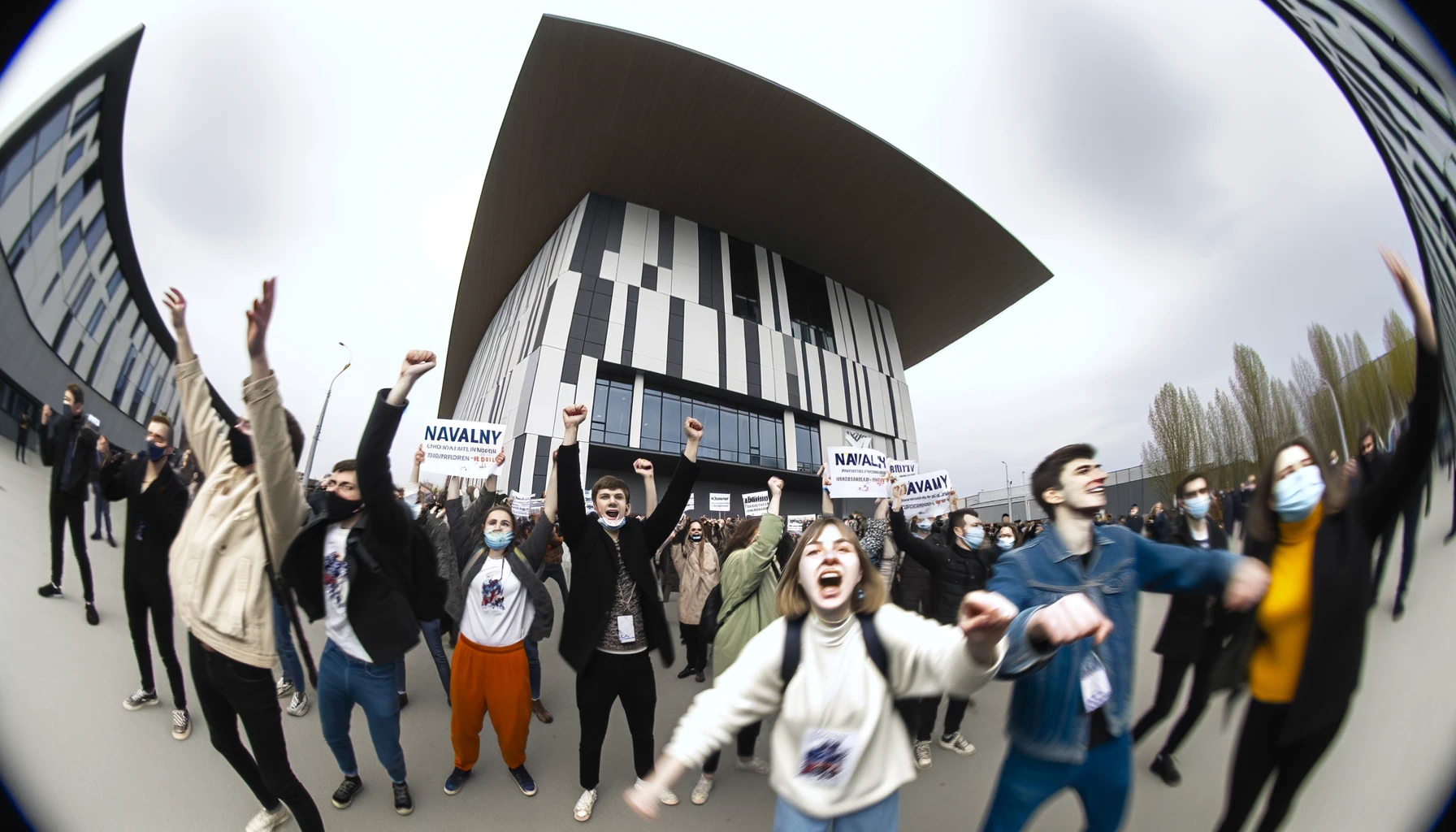This weekend marked a significant moment in Russia as citizens and people worldwide voiced their opposition to President Vladimir Putin during the Russian elections. This event, known as “Noon Against Putin,” was in honor of Alexei Navalny, a prominent figure who opposed Putin’s government and tragically passed away while in prison. Navalny had encouraged people to participate in the election in a unique way—by either spoiling their ballots or voting for someone other than Putin at noon.
On Sunday, many people in Russia and around the globe took action. In Russia, lines formed at polling stations around noon, showing that many were eager to participate in this act of protest. Meanwhile, in cities like Berlin, Milan, Brussels, and Paris, people gathered outside Russian embassies to show their solidarity and opposition to Putin, who was expected to win his fifth term in office, potentially extending his rule until at least 2030.
Yulia Navalnaya, Navalny’s widow, was seen among the demonstrators in Berlin, making a poignant statement about the importance of participating in the election, regardless of how people chose to do it. She encouraged voters to come to the polling stations and either vote for an alternative candidate, spoil their ballot, write “Navalny” on it, or simply show up and then leave. Her message was clear: by participating in this way, people could express their refusal to recognize Putin as a legitimate president.
The backdrop to this event is the untimely death of Alexei Navalny, who was Russia’s leading opposition figure and had been imprisoned in a Siberian penal colony. His death sparked outrage and sorrow among his supporters, who suspect that high-ranking officials in Russia might have been involved. Following Navalny’s death, his wife Yulia has stepped forward, vowing to continue his mission to challenge Putin’s tight grip on power and to fight for a more democratic Russia.
This article is based on the following article:
https://www.axios.com/2024/03/17/russia-putin-elections-navalny

Background Information
1. Who is Vladimir Putin?
Vladimir Putin has been a dominant figure in Russian politics for decades. He first became President of Russia in 2000 and has held power almost continuously since then, either as President or Prime Minister. His leadership is characterized by a strong centralization of power, significant restrictions on political freedoms, and a crackdown on dissent.
2. What are Presidential Elections in Russia?
Presidential elections in Russia are held every six years, where citizens vote for the President, the country’s head of state. The election process is often criticized by international observers and opposition figures within Russia for lacking fairness and transparency, with accusations of vote-rigging and suppression of opposition candidates.
3. Who was Alexei Navalny?
Alexei Navalny was Russia’s most prominent opposition leader, known for his anti-corruption campaigns and major protests against the Kremlin (Russia’s executive branch). Navalny used social media effectively to expose corruption and organize demonstrations. He faced constant legal challenges and harassment from the Russian government and was poisoned in August 2020, an act he attributed to the Kremlin. Navalny died in February while serving time in a Siberian penal colony, under suspicious circumstances that led many to suspect foul play.
4. The Concept of Spoiling Ballots or Voting for Non-Putin Candidates
In elections, spoiling a ballot (deliberately marking it incorrectly so it cannot be counted) or voting for any candidate other than the incumbent (in this case, Putin) are ways voters can protest the election process or express dissatisfaction with the available candidates. It’s a form of civil disobedience or symbolic opposition.
5. Why Are Protests Important in Authoritarian Regimes?
In countries with authoritarian leadership, public protests are a critical means for citizens to express dissent and demand change. Such regimes often limit freedom of expression, making protests a risky but powerful tool to challenge the status quo, raise international awareness, and potentially drive political reform.
6. Global Reaction and Solidarity
International protests, such as those at Russian embassies worldwide, show global solidarity with opposition movements within Russia. They can put pressure on authoritarian regimes by highlighting human rights abuses and the lack of democratic freedoms to the international community.
7. The Role of Yulia Navalnaya
Following her husband’s death, Yulia Navalnaya became a symbol of the opposition movement against Putin. Her participation in protests and calls to action continue the work of her husband, rallying support both within Russia and internationally against Putin’s government.
Understanding these elements provides a comprehensive background to the protests against Vladimir Putin during the Russian election, illustrating the deep-rooted tensions within Russia and the broader implications for democracy and human rights.

Debate/Essay Questions
- Is spoiling ballots or voting for non-mainstream candidates an effective way to protest in authoritarian regimes?
- Is the concept of a ‘legitimate president’ subjective, and who gets to decide this legitimacy in the context of disputed elections?
Please subscribe to Insight Fortnight, our biweekly newsletter!
